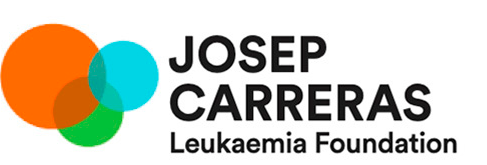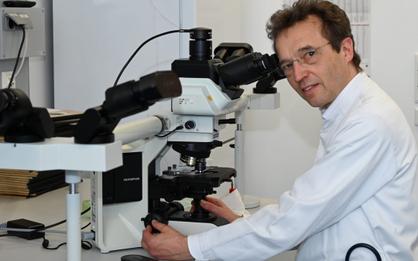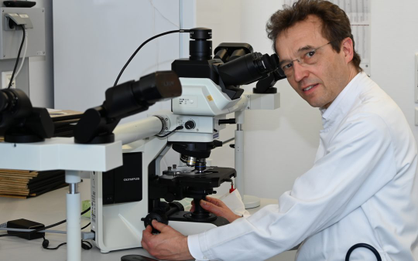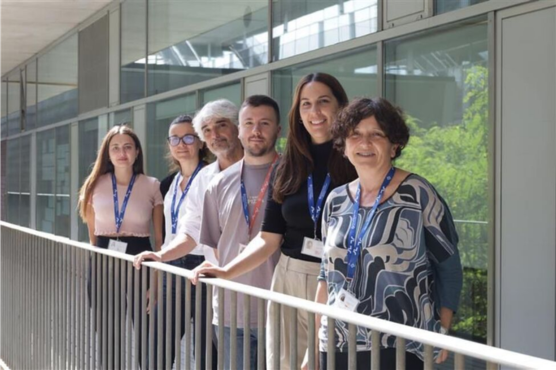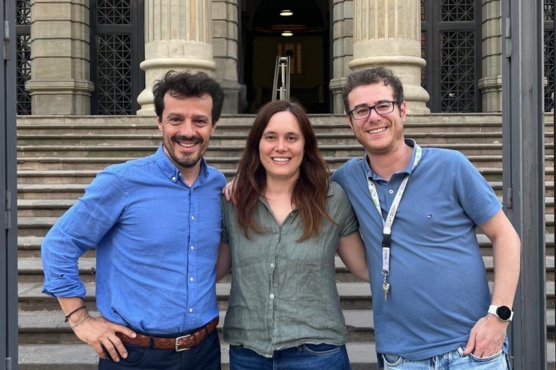►Head of the Carreras Leukemia Center at Marburg University Hospital and vice-president of the José Carreras Leukämie Stiftung, Professor Dr. Andreas Neubauer, plans scientific study on the use of an immune inhibitor against this viral disease.
Professor Dr. Andreas Neubauer and his team from the Marburg University Medical center is raising hope for a COVID-19 cure. He tested, with success, the cancer drug ruxolitinib for the first time to cure a patient suffering from acute respiratory distress syndrome (ARDS) after infection with the coronavirus SARS-CoV-2.
Prof. Neubauer and his colleagues report on the successfully treated case in the scientific journal Leukemia, in the article “Ruxolitinib for the treatment of SARS-CoV-2 induced acute respiratory distress syndrome (ARDS).”
The German Federal Institute for Drugs and Medical Devices has now approved a clinical trial where the researchers hope to investigate further the use of ruxolitinib for the treatment of COVID-19-associated ARDS.
Professor Dr. Andreas Neubauer teaches hematology and oncology at the University of Marburg. Since 2009, he has headed the Carreras Leukemia Center at Marburg University Hospital and is the Vicepresident of the Deutsche Jose Carreras Leukämie Stiftung.
“We knew from Chinese publications that a so-called cytokine storm characterizes patients with a severe and even fatal course of the disease,” Neubauer says. “During a cytokine storm, the body is flooded with substances that stimulate the immune system.” This overreaction of the body’s defense system damages the tissue — making it all the easier for the invading virus to spread.
Neubauer thought that the patient might respond to ruxolitinib, a drug initially used in cancer treatment. It inhibits enzymes in the body involved in excessive inflammatory reactions. “We suggested to our colleagues who were treating the patients with COVID-19 that the cancer drug might be able to prevent the life-threatening effects brought on by the inflammatory damage to lung tissue,” Neubauer says.
“We faced a difficult decision,” adds Professor Dr. Hinnerk Wulf, Director of the Department of Anesthesia and Intensive Care. “It was uncertain whether the theory would also work in practice; after all, the experimental treatment was also associated with risk.” The condition of the Marburg University Medicine patient did improve after she received ruxolitinib. The treatment team noted clinical stabilization as well as rapid improvement in respiration and heart function.
The success of the treatment was not an isolated case. The team in Marburg also administered the cancer drug to several other patients to control a severe course of the disease. “It turned out well in the end for all patients who received the cancer drug for longer than one week,” Neubauer explains. A team lead by Professor Dr. Paul Graf La Rosée at Schwarzwald-Baar Hospital has also reported the successful use of the immune inhibitor, although in less severe cases and the results are awaiting publication.
“The time between the onset of ruxolitinib administration and health improvement is so short that it is reasonable to assume that the drug contributed to the favorable clinical course,” Neubauer explains.
The José Carreras Leukämie Stiftung has provided financial support for this research work, which has also been cited in the prestigious journal Nature.
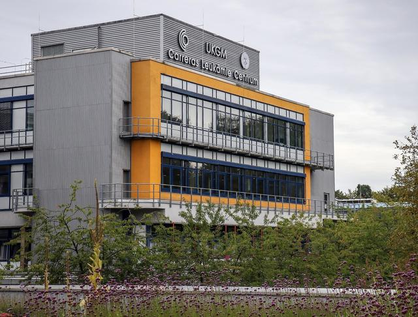
Carreras Leukemia Center in Germany

